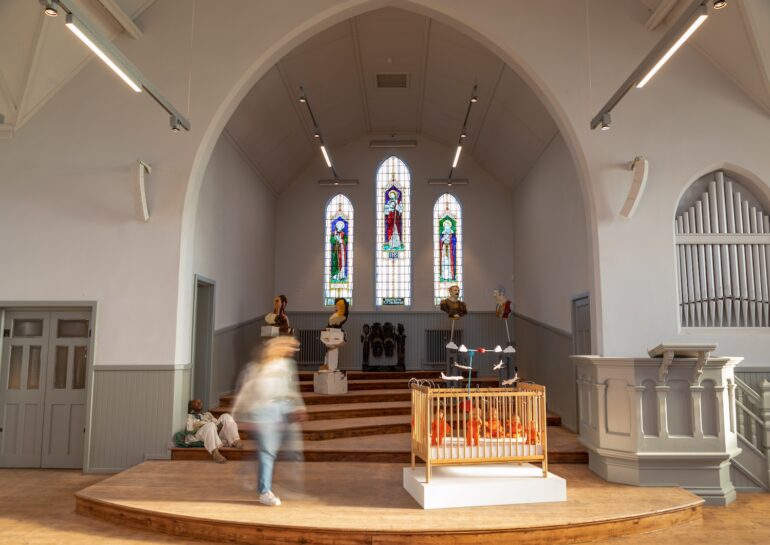Ondřej Chybík, co-founder of CHYBIK+KRISTOF, on Brno, and why the Czech Republic’s second largest city has its advantages over the capital.
The greenhouse at Brno’s Augustinian Abbey has been recreated on its original site.
Nested in Central Europe, it comes as no surprise that Brno’s turbulent history can be seen and read by the layers of the built environment. Sometimes on a single street, a keen eye can observe modernist, functionalist, classicist or art deco buildings, and of course great examples of contemporary architecture as well. The ability to read these layers of history gives a certain sense of belonging; an ability to locate oneself in space and time. The way we treat existing buildings and the history that surrounds us is essential to our sense of wellbeing.
It’s this attitude that led me and my colleagues to try and save one of Brno’s modernist buildings – the Zvonarka Central Bus Terminal. It is in many ways a brilliant brutalist building, but I can still remember how dreary it felt when I was a teenager waiting on the platform for my then-girlfriend, and it was in desperate need of a 21st century upgrade. With the building’s owner, we initiated a project to keep the bus station’s character but improve its connection to the urban network of the city; to restore the original architecture and add a waiting room.
The combination of Brno’s tight social network, its culture of citizens’ initiatives, and the fact that the city is not the capital, gave me the confidence to initiate the project, and ultimately made it possible.
It is lively and vibrant, maybe more so than Prague, where the pressure to represent the nation can make the city feel a bit stuffy”
Brno has the sense of a home occupied by one big family, a feeling reinforced by its culture of community-led events, a rich student network fed by the city’s 13 universities, and the frequency with which locals open up hip bars and restaurants. I enjoy living in Brno precisely because it’s not the capital. Being the second largest city in the Czech Republic has its advantages. It is large enough, lively and vibrant, maybe more so than the capital, where the pressure to represent the whole nation can make the city feel a bit stuffy. Most importantly – and in stark comparison to Prague – it rarely gets crowded by tourists.
Community-organised events and the appreciation of our history and origins come together in Brno’s old Augustinian Abbey. It was the home of monk and scientist Gregor Mendel, the father of genetics, who conducted his experiments and deduced the fundamental laws of inheritance while living here. I can still recall the exact angle – the perspective – of the Abbey’s tower that I attempted to sketch while attending a kids’ drawing course as an afterschool activity. Mendel’s workspace – the Abbey’s greenhouse – has disappeared, destroyed by nature long ago. But we were honoured to be able to commemorate him along with his contribution to science and religion – apparently opposite disciplines – by recreating and reinterpreting his famous greenhouse in its original location. In this way, we were able to contribute to Brno’s growing social and community network by providing a multifunctional space for social dialogue.
Like many, I studied and worked abroad, but Brno is my home and it is very special to me. I consider myself lucky to be able to live here and hopefully to make it a better place.
Source: Architecture Today


